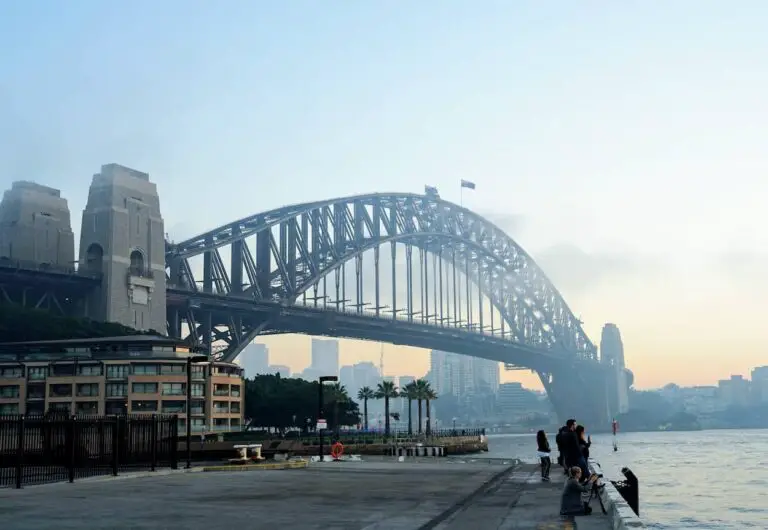Cost of Living in New Zealand vs UK in 2024
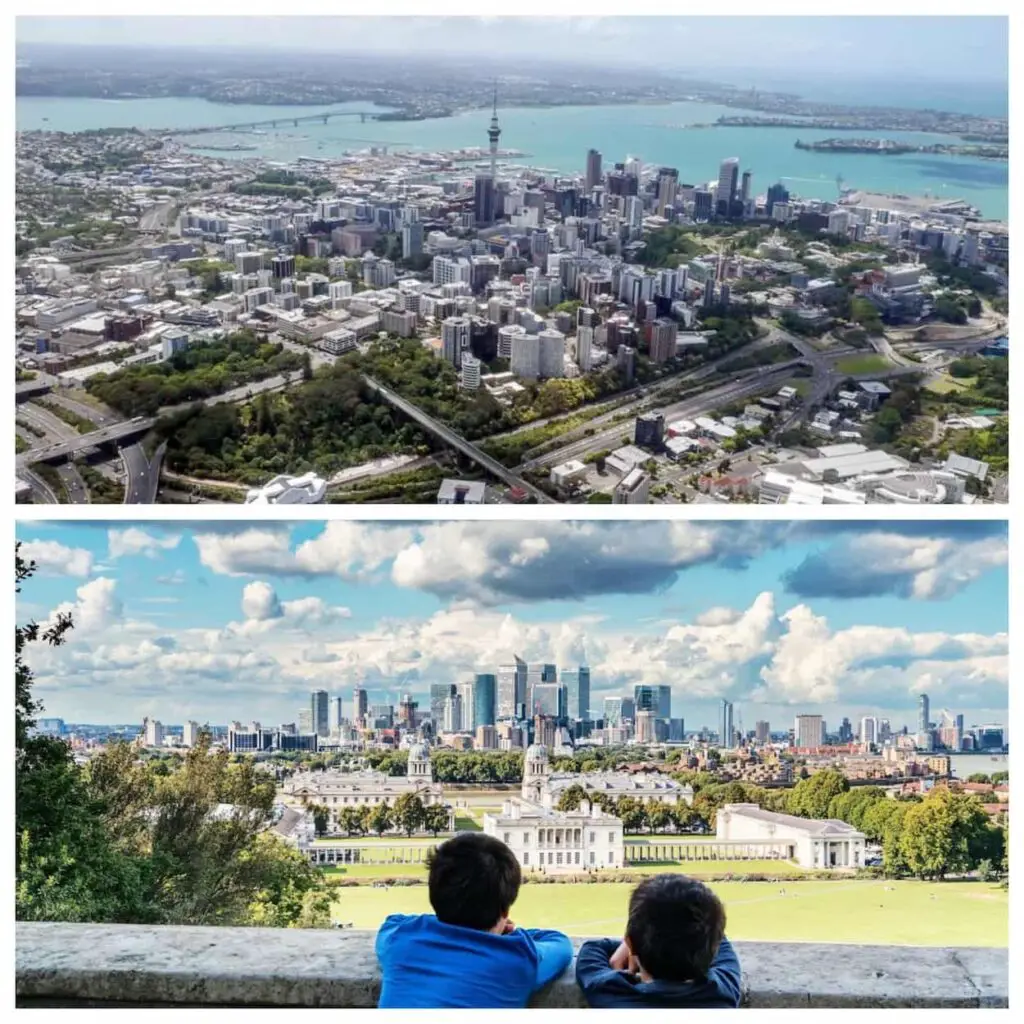
With the cost of living going up exponentially, people are more worried about their spending, especially when moving countries. If you are considering relocating from the UK to New Zealand or vice versa, living expenses and salaries are probably on top of your mind.
New Zealand has lower rent compared to the UK. However, the general cost of living is almost equal. In New Zealand, the average cost of living for a single ranges between $3,580 to $5,185 per month. In the UK, a single needs $4,358 to $6,000 monthly. The difference is significant due to the high rent prices in London.
The cost of living across all countries has been crazy since 2022, including the UK. I get you, tomatoes cost $11 in New Zealand, even without inflation. So, which country is more expensive in the end? Isolated and tiny New Zealand or powerful England?
Read our guides about the cost of living in New Zealand and a video on YouTube.
- Cost of living in New Zealand
- Cost of living in New Zealand vs Australia
- Cost of living for a family
- Cost of food
So, is it cheaper to live in New Zealand or the UK?

That said, New Zealand is ranked 12th out of 79 countries regarding the cost of living, with a price index of 184.
According to the world’s largest cost of living resource Numbeo.com:
| Consumer prices in New Zealand are 12.5% higher than in the UK | |
| Rent prices in New Zealand are 1.5% lower than in the UK | |
| Restaurant prices in New Zealand are 2.9% lower than in the UK | |
| Groceries prices in New Zealand are 38.8% higher than in the UK |
My conclusion of the cost of living in the UK vs New Zealand:
- Housing: Housing costs, including rent or mortgage payments, are lower in New Zealand.
- Food: Groceries are almost twice more expensive in New Zealand than in the UK, however, eating out in the southern hemisphere is cheaper.
- Utilities: Utilities such as electricity, and water are cheaper in New Zealand.
- Taxes: New Zealand has lower personal income tax rates compared to the UK.
- Education and childcare: Tertiary education, including tuition fees, is more affordable in New Zealand. Preschool childcare is almost twice less expensive than in the UK.
- Healthcare: Both countries have publicly funded FREE healthcare.
Average cost of living
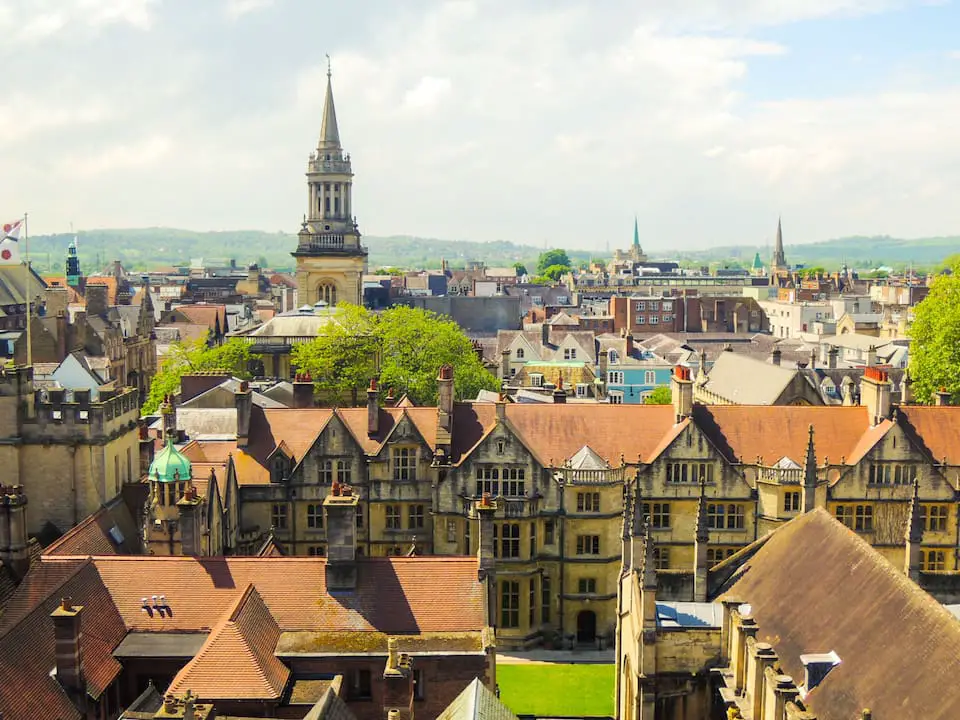
Here is a general monthly cost of living in New Zealand vs the UK for a single person:
| New Zealand | The UK | |
|---|---|---|
| Rent for a two-bedroom house | $2,200 – $3,000 | $2,647 (£1,300) – $4,070 (£2,000) |
| Utilities | $150 – $300 | $305 – $509 (£150 – £250) |
| Groceries | $800 – $1,200 | $611 (£300) |
| Transportation (owning a car) | $200 – $400 | $508 (£250) |
| Phone | $25 – $50 | $20 – $50 (£10 – £25) |
| Broadband internet | $55-$85 | $61 (£30) |
| Miscellaneous and leisure (eating out, cosmetics, etc.) | $150 | $203 (£100) |
| Total per month | $3,580 – $5,185 | $4,358 – $6,000 |
Consequently, some items are more expensive in the UK, while others are in New Zealand.
Here are the things that you will pay more for in New Zealand, 100% guaranteed:
- Groceries
- Phone and internet
- Houses (when buying)
- Utilities
Categories where you will save in New Zealand vs the UK:
- Rents
- Cars and car usage
- Eating out
- Insurances e.g., pet insurance and pet visits
- Taxes
1. Housing
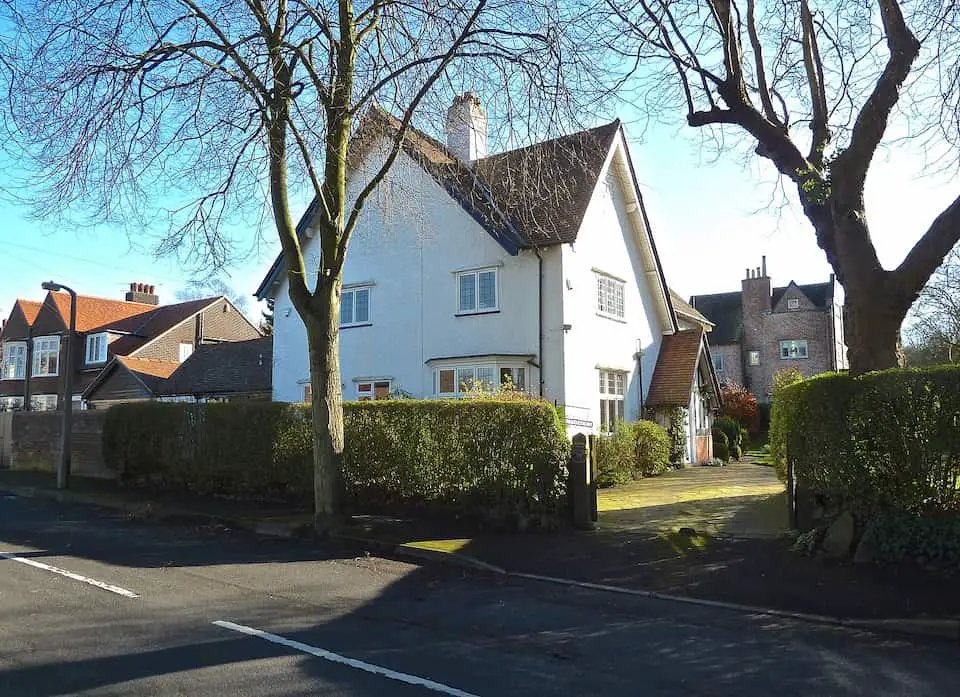
Rent
New Zealand rent prices are lower than in the UK, but it very depends on the city. In many UK cities, you will find cheaper rent, while London messes up all statistics.
The UK
The UK annual rents have increased by 4.7% in the last 12 months. In June 2022, the average UK rent was $2,307 (£1,133), according to Statista. However, in Scotland, it’s only £812.
Greater London is the most expensive in terms of rent, with an average rent of $3,760 (£1,846). One bedroom flat in London can cost you anywhere from £1,200 to £2,000 and even more per month. Housing in the UK is more expensive than in other European countries.
New Zealand
Rent will take a large portion of your salary in New Zealand, and the rates are pretty high too. In fact, New Zealand is one of the worst OECD countries when it comes to income and housing expenditure. Meaning, people spend too much on rent.
For example, in cities like Auckland, you will need at least $650 per week to afford to rent a house in the suburbs. Smaller towns are less expensive, but nowadays, it’s hard to find anything with more than one bedroom for less than $600 per week or $2,400 per month.
Of course, renting a room costs much less, and generally, a budget of $200 to $400 per week is enough for a decent room.
Here’s a breakdown of average rent in New Zealand vs in the UK for different house sizes:
| House type | Average rent per month in the UK | Average rent per month in New Zealand |
|---|---|---|
| Studio | $1,600 – $2,030 (£800 – £1,000) | $1,600 – $2,000 |
| 1 Bedroom | $2,030 – $2,840 (£1,000 – £1,400) | $2,000 – $2,200 |
| 2 – 3 Bedroom | $2,535 – $4,665 (£1,250 – £2,300) | $2,400 – $3,000 |
| 3 – 4 Bedroom | $3,955 – $7,709 (£1,950 – £3,800) | $2,600 – $3,600 |
In New Zealand, most people live in houses, so you are more likely to rent an entire house vs an apartment (flat), which are more common in the UK.
The median rent in Auckland in 2022 is between $595 to $690 per week for two bedrooms or $2,200 (£1,153) to $2,500 (£1,310) per month. However, real market rent is often higher, and you can expect to see rents above $700 per week in desirable neighborhoods.
In Wellington, the capital of New Zealand, the average rent across all types of properties was $620 per week in January 2023.
To save on rent, try house sitting!
Buying a house
If you’d like to purchase your own home soon after arrival, it’s crucial to know property prices.
One fact is that house prices in New Zealand are significantly higher than in the UK. Property prices in New Zealand are some of the highest in the world, especially considering average wages. Expect to pay above $1,000,000 (£524,310) for a typical three-bedroom house.
Overall, house prices in New Zealand vary heavily depending on the location. Prices range from $350,000 to $1,382,722. Statistics show that the average cost of buying property in New Zealand is $6,602 per square meter.
The average price of the house in November 2022 was $945,568.
That said, you can get a decent house in other cities or towns than Auckland and Wellington for about $600,000 – $800,000.
In the UK, the average property value was £297,524 ($605,000) in 2022.
Below are average prices depending on the property type sold in England in 2022:
| Property type | March 2022 |
|---|---|
| Detached | £471,984 ($957,509) |
| Semi-detached | £284,438 |
| Terraced | £241,398 ($489,721) |
| Flat/maisonette | £244,872 |
| All | £297,524 |
Yet, houses in London are also very pricey and cost not less if more than in Auckland, with an average home price of £523,666 ($1,062,355) and a detached house costing £1,069,981 ($2,170,659) in March 2022.
If we are looking at flats, here are the average prices per square meter:
- In the city center: New Zealand $9,889 vs $8,926 (£4,407) in the UK
- Outside of the city center: $7,980 in New Zealand vs $6,652 (£3,284) in the UK.
Apartments cost significantly more in New Zealand than in the UK, probably due to the lack of them. Consequently, not only houses are more expensive in New Zealand but also apartments.
Read this guide about house prices in New Zealand.
2. Utilities
Mainly because of the soaring electricity prices, utilities tend to cost more in the UK vs New Zealand.
In the UK, the average monthly cost of utilities, including electricity, gas, and water, is around £180-£200 ($360 – $400). To be exact, the average monthly bill for both electricity and gas is £182 with a medium consumption level. £82 goes for electricity and £100 for gas. In the winter, households tend to pay more.
To compare, New Zealand’s average household pays around $250-$300, and some pay even as little as $150 per month. The price of electricity significantly depends on the heating method the house uses and how much you consume it.
The bill can be as high as $500 for some families. If heating is done with electricity, the price will be on the higher end, while gas is more affordable.
Utility bills in New Zealand mainly come to electricity since water is often free of charge or relatively cheap. Gas is another concern if you are using it for cooking.
According to the UK Parliament, household energy bills increased by 54% in April 2022 and were due to increase by a further 80% in October 2022. Prices are constantly rising due to the Russia & Ukraine conflict.
The average energy bill in October 2022 was about £2,500 for a year. In April 2023, they guarantee an energy bill of about £3,000 for a typical household and ‘typical’ annual consumption. So, that comes to about £250 ($510) per month.
3. Food
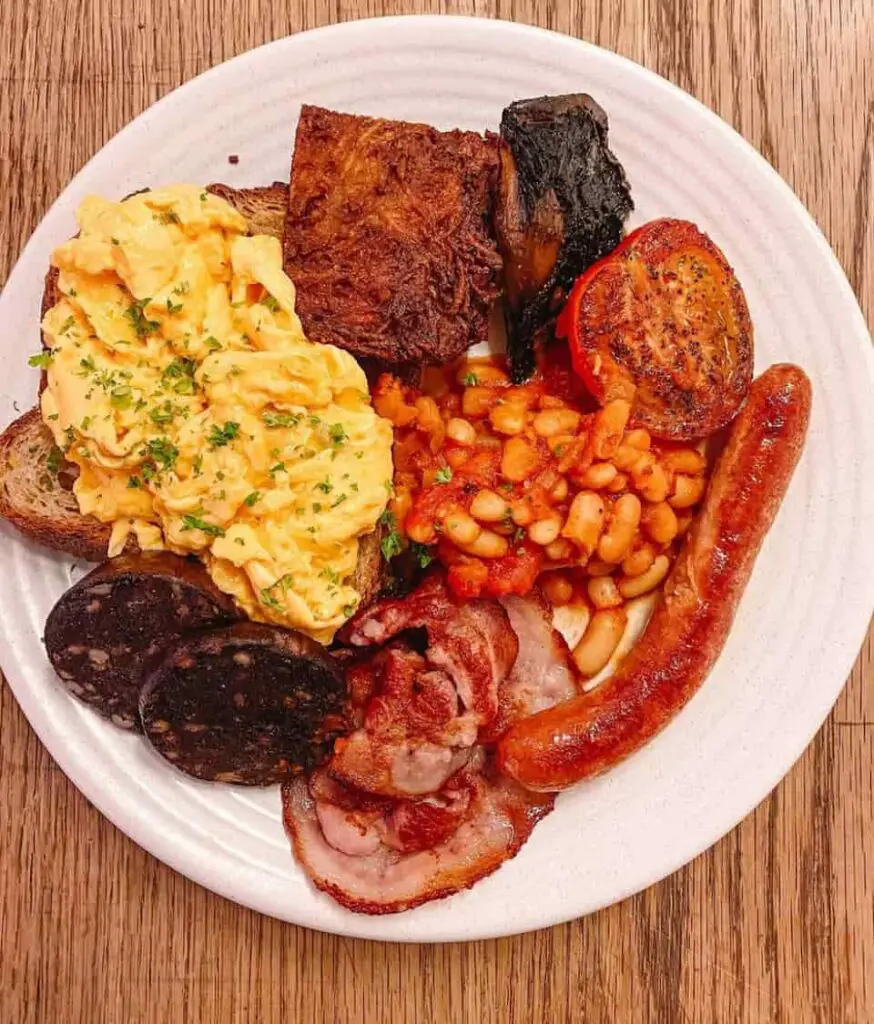
Groceries
Food is the second largest expense you must budget for in New Zealand. Groceries are on the expensive side in this country. In fact, in 2021, New Zealand was ranked as the sixth most expensive out of 38 countries.
In the UK, the average person spends £44 ($89) on food per week. According to data from the Office of National Statistics, the average UK household now spends around £4,296 ($8,749) on groceries and £1,628 ($3,315) on food at restaurants and takeaways every year.
According to the pure statistics, the average weekly food shop is £34 per person in the UK, and £13 is spent on food at restaurants and takeaways, giving us a total of £48 per week for one person. But clearly, it rarely looks like a truth for most people and is a generalization based on statistics.
Inflation 2022-2023 and food prices
Not only has New Zealand seen a sharp increase in food prices over the last 12 months, but a similar situation is happening in the UK, too. According to Gov.uk, the inflation rate for food and non-alcoholic beverages rose to 19.2% in March 2023.
Analysis shows the price of a weekly basket of food has increased by 24-26% since April 2022.
The largest contributor to the rise in food inflation was bread and cereals, for which average prices rose by 19.4% in the year to March 2023.
Prices are also rising in restaurants and cafés, where the UK has seen an increase of 10.4% in the year to March 2023.
At the moment, British households are facing the fastest annual increase in food and drink prices since 1977.
Some food items in the UK cost significantly more in April 2023 vs April 2022, e.g., Milk +45%, Cucumbers 83%, Eggs +47%.
But what about New Zealand?
The situation here isn’t much better than in the UK. Change in food prices March 2022 vs March 2023 according to the Stats.govt.nz:
- Fruit and vegetable prices +22.2%
- Meat, poultry, and fish prices +7.8%
- Grocery food prices +13.7%
- Non-alcoholic beverage prices +8.2%
- Restaurant meals and ready-to-eat food prices +8.7%
Food prices have risen at their fastest annual rate in more than 30 years, with a sharp increase in groceries, fruits, and vegetables.
Stats NZ said food prices in 2023 rose by at least 12%.
Here is an overview of grocery prices in the UK and New Zealand as of April 2023, keeping in mind that grocery prices are rising rapidly in both countries. We have taken prices of typical items from Sainsbury’s in the UK and Countdown in New Zealand – two middle-range supermarket chains in both countries:
| Markets | United Kingdom | New Zealand |
|---|---|---|
| Milk (1 liter) | $2,03 (£1,00) | $3 |
| Loaf of Fresh White Bread (500g) | $2.12 (£1.05) | $3.90 |
| English muffins | $3 (£1,50) | $4,30 |
| Oats 500 gr | $2,4 (£1,20) | $5,00 |
| Rice (1kg) | $2 (£1.00) | $3.18 |
| Eggs (regular) (12) | $4.38 (£2.16) | $7.57 |
| Broccoli | $4 (£2,08 kg) | $2,5 each |
| Cheddar Cheese (1kg) | $18 (£9) | $14.35 |
| Chicken Fillets (1kg) | $14 (£7) | $15.50 |
| Salmon smoked 100gr | $4 (£2,00) | $9 |
| Snapper fillters (1kg) | $40 (£20,00) | $54,50 |
| Beef mince (1kg) | $13 (£6.50) | $14.90 |
| Apples (1kg) | $2 (£1) | $4.49 |
| Sweet potato (1kg) | $2 (99p) | $11 |
| Banana (1kg) | $2 (£1) | $3.79 |
| Oranges (1kg) | $4 (£2,00) | $7.50 |
| Tomato (1kg) | $3,5 (£1,75) | $9.99 |
| Cucumber | $1,2 each (65p) | $3,5 each |
| Paprika red | $1,2 each (60p) | $3 each |
| Potato (1kg) | $1,5 (75p) | $4.99 |
| Carrots (1kg) | $1 (55p) | $3,5 |
| Strawberries 250gr | $3 (£1,45) | $5,80 |
| Onion (1kg) | $2 (95p) | $3.49 |
| Lettuce (1 head) | $1.46 (£0.72) | $4.31 |
| Mixed vegies frozen (1kg) | $2,6 (£1,30) | $4,40 |
| Bottle of Wine (Mid-Range) | $14.18 (£7.00) | $19.00 |
| Domestic Beer (0.5 liter bottle) | $3.66 (£1.81) | $5.18 |
The cost of food is a concern in both countries, but New Zealand still has higher prices than the UK, even during inflation.
Eating out
Both Brits and Kiwis love to eat out. On average, people in the UK spend 25% of their annual income dining out.
Foodies will find New Zealand a paradise as eating out is more affordable and tastier than in the UK! New Zealand is a hub of different cultures, so you get to indulge in of kinds of foods from all around the world. That said, New Zealand was greatly influenced by the British, so you won’t miss fish and chips!
Here is an overview of typical restaurant, cafe, and fast-food prices in the UK and New Zealand as of April 2023:
| UK | New Zealand | |
|---|---|---|
| Meal in regular cafe | $30 – $40 | $25 – $30 |
| Breakfast | $25 | $18-$25 |
| Meal for 2 in a decent restaurant | $113 | $120 |
| McDonalds | $12 | $14 |
| Fish and chips | $18 – 20 | $10 – $14 |
| Beer | $16 | $10 – $12 |
| Cappuccino or flat white | $6 | $5 |
Here are some typical prices of eating out in the UK depending on the cuisine:
- Asian – $41 (£20)
- Chinese – $33 (£16)
- Italian – $42 (£21)
- Japanese – $47 (£23)
Read the full guide about the cost of food in New Zealand.
4. Transportation
In transportation expenses, New Zealand wins over the UK, especially when it comes to owning a car.
Car
Most people drive a car in New Zealand. Luckily, cars here are pretty affordable, you can buy a decent used vehicle for $5,000 to $10,000.
The cost of running and owning a car in New Zealand ranges depending on how much you drive and your insurance type. On average, expect to spend about $3,000 to $4,000 per year or about $250 per month.
Car insurance is cheaper in New Zealand, where the most affordable option sells for $400 per year, and the most expensive goes for around $800 annually.
On the other hand, UK car owners spend over $6,109 (£3,000) per year to run their cars—that is about $508 per month. An average insurance rate is $985 (£484) a year.
In addition, UK drivers pay for road tax, parking fees & permits. In New Zealand, you will enjoy a lot of free parking places.
Moreover, cars are less expensive in New Zealand; for example, a typical Toyota Corolla costs £22,558 in the UK and only £16,676 in New Zealand.
Public transportation
In Auckland, a single bus or train ride costs around $4-$6, depending on the number of zones, while a monthly pass costs about $215.
In London, a single bus or train ride costs around £1.50-2.50 ($3 – $5), while a monthly pass costs £94.90 ($193).
Here is an overview of public transport costs in the UK vs New Zealand. However, this type of transport isn’t available anywhere you go in New Zealand. Keep in mind that only main cities like Auckland, Wellington, and Christchurch have more less developed public transportation.
| UK | New Zealand | |
|---|---|---|
| One-way ticket | £2.50 ($5.06) | £1,23 – £1.73 ($2,5 to $3,50) |
| Monthly pass | £66.00 ($133.67) | £86.90 ($176.01) |
| Taxi start | £3.00 ($6.08) | £1.97 ($4.00) |
| Taxi 1 km | £1.24 ($2.51) | £1.58 ($3.20) |
| Gas – petrol 91 | £1.46 ($2.97) | £1.37 ($2.91) |
Using public transport on a regular basis would be more affordable in the UK.
Fuel
Fortunately, petrol costs less in New Zealand than in the UK: $2.91 vs $2.97. Enjoy the ride!
5. Phone and internet
Mobile data and internet are generally more expensive in New Zealand than in the UK. The internet is quite pricey here. So for a basic plan with 2 GB data and 100 min of calls, you will pay at least $25 at Vodafone.
In the UK, similar packages sell for $20 (£10) and less. With UK Vodafone, you get 2 GB for $20 (£10) for 30 days.
Home internet is also cheaper in the UK. An unlimited fibre plan with Vodafone costs only $48 (£24) per month. In New Zealand, unlimited internet for your house starts at $55 for broadband, but fibre will cost you at least $69 (£33) per month. So, fibre is almost £10 more expensive in New Zealand than in the UK.
| New Zealand | The UK | |
|---|---|---|
| Phone | $25 – $60 | $20 – $50 (£10 – £25) |
| Broadband internet | $55 – $85 | $61 – $120 (£30 – £60) |
6. Healthcare
The healthcare systems in New Zealand and the UK are very similar and publicly funded. So, residents who are eligible for public healthcare, e.g., work visa holders, don’t pay for medical services.
The main difference between healthcare in New Zealand vs the UK is that in the UK, employees pay 12% of their total income for National (health) insurance (NHS). In New Zealand, you don’t owe anything.
However, even with a subsided healthcare, in New Zealand, everyone must pay a fee of around $40-60 to visit a GP. Only after can you be redirected to the specialist, costs for which are covered by the state.
Both in the UK and New Zealand, you pay for dental care, ophthalmology, and some prescription medications out of pocket. In that case, private dental insurance or health insurance might be helpful.
Before you can qualify for free healthcare in any of these places, we recommend signing up for private insurance like Cigna Global. They operate worldwide.
7. Insurances
What insurance do you need in New Zealand and the UK, and how much does it cost?
In New Zealand, one generally doesn’t need any insurance; at least, there aren’t many mandatory ones except house insurance for homeowners.
Car insurance is mandatory in the UK, and most drivers have one in New Zealand. The average price is about $500 in New Zealand and $985 (£484) per year in the UK.
The cost of other insurance you might take out, like contents insurance, dental insurance, life insurance, and pet insurance, are calculated at the insurance company when you submit the quote.
8. Schools and childcare
In New Zealand, the education system is publicly funded, where primary and secondary schools are free of charge. However, some schools may require additional fees for things like school uniforms or extracurricular activities.
Childcare in New Zealand is less expensive than in the UK, where the average cost of full-time preschool childcare in Auckland is around $350-400 per week or $1,200 per month max.
The average cost of full-time preschool childcare in New Zealand is $1,238 per month vs $2,160 in the UK.
The UK is similar to New Zealand, where parents don’t pay for schools. The average cost of full-time childcare in London is around $2,240 – $2,647 (£1,100-£1,300) per month.
9. Entertainment and others
If you want to stay fit and join the gym, it will cost you $64 per month in the UK and $66.79 in New Zealand, although it’s more common to see membership prices of around $100 in New Zealand.
A movie ticket in Auckland costs around $16-$22, while a ticket to a live music concert can range from $40-$150. The best thing about New Zealand is that most people spend their free time outside, exploring nature and the outdoors, which is free!
On the other hand, the British prefer to go shopping or have a pint in a pub with some hearty snack, so it instantly becomes more expensive and unhealthier.
That said, a cinema ticket in London can cost around £10-15, while the price for a ticket to a live music concert ranges from around £30-150. Indoor entertainment options like museums and galleries are world-class in England and are preferred by tourists and locals alike. You might find some deals and discounts in this category too. Moreover, some museums are free of charge!
Lastly, if you are fancy shopping for clothes, here is what to expect:
| UK | New Zealand | |
|---|---|---|
| 1 pair of jeans | $123.54 | $115.75 |
| 1 summer dress | $60.61 | $67.58 |
| 1 pair of Nike shoes | $132.27 | $158.94 |
| 1 pair of men leather business shoes | $132.50 | $189.54 |
Cost of living in Auckland vs London
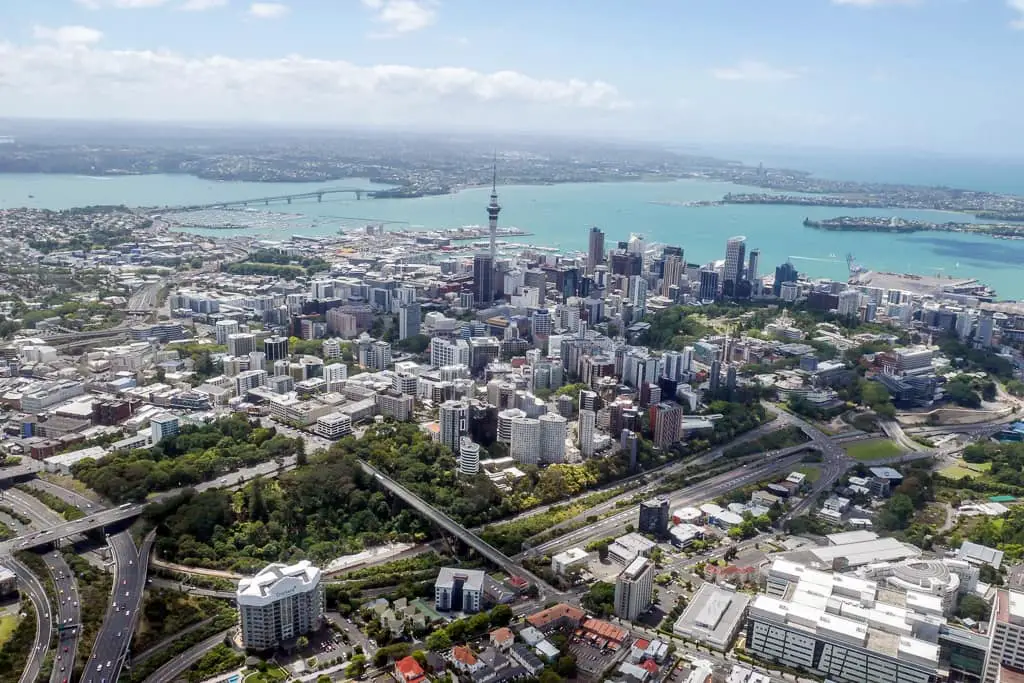
The shocking fact is that London is 27% more expensive than Auckland. According to Numbeo, the cost of living index for Auckland is 72.32, while the cost of living index for London is 84.68. This puts London above Auckland in terms of living expenses.
Here is an overview for you:
| Rent | Auckland | London |
| Two-bedroom house/flat | $2,500 – $3,200 | $4,073 – $5,000 (£2,000 – £2,500) |
| Groceries | $800 – $1,200 | $600 – $1,200 (£300 – £600) |
| Transportation | $215 | $193 |
| Average cost of a mid-range meal | $30 | $70 (£35) |
| Total per month for one person | $4,791 | $6,665 (£3,273) |
London’s cost of living
| Housing type in London | Monthly rate |
|---|---|
| One-bedroom apartment (city center) | £1,662 |
| One-bedroom apartment (outside of city center) | £1,272 |
| Three-bedroom apartment (city center) | £3,188 |
| Three-bedroom apartment (outside of city center) | £2,081 |
| Internet | £32 |
| Utilities (gas, electric, and water for an 85 m2 apartment) | £171 |
| Council Tax | £80 |
Salaries in the UK vs New Zealand
To give you a good overview of the standard of living in New Zealand vs the UK, it’s crucial to look at the salaries. Income plays a very significant role if we look at the costs in both countries. It determines how much you can afford while living in one of these places.
Overall, while the UK tends to offer higher salaries, the cost of living is also higher. New Zealand offers a high quality of life and a more affordable cost of living, but salaries are often lower in many industries and across many professions.
For example, according to Glassdoor.co.nz, the average salary for a software engineer in Auckland is $95,000 (£46,645). According to Teleorg.org, for this job type, Auckland ranks 86th for salaries among 265 cities across the world – not the best score.
On the other hand, a software engineer who works in London, UK, enjoys an average annual salary of £69,749.
Nonetheless, if we take a look at the hard numbers of average wages, the average monthly net salary in the UK is $4,708, while it’s $4,736 in New Zealand.
When it comes to a salary, you need for a comfortable living; in New Zealand, you should have at least $55,000 per year. In the UK, it’s about $61,000 (£30,000) per year or £2,000 to £3,000 monthly.
In New Zealand, a good annual salary is between $70,000 and $80,000 per year before taxes.
In 2022, the median income was $27 per hour, while the average salary in New Zealand was $57,072 (£28,004).
Did you know that in New Zealand, you can apply for government support via Work and Income if you don’t earn enough?
The median salary for full-time workers in the UK in 2022 was $67,000 (£33,000) nationwide and $85,266 (£41,866) in London. Consequently, there is about a $10,000 difference in earnings between these countries.
Read our guide on salaries in the UK vs New Zealand.
Highest paying jobs in New Zealand include (source: Trademe.co.nz; Seek.co.nz):
- Information architects (IT): $135,000
- Data warehousing and Business Intelligence (IT): $115,000
- Cybersecurity specialists: $105,000
- Construction project and contract management: $105,000
- IT Sales: $105,000
- Finance managers: $100,000
- Database experts: $95,000
- Quantity surveying: $95,000
- Surveying: $95,000
- Test analysts: $95,000
- Architects: $85,000
- Geotechnical engineers: $85,000
- Civil and structural engineers: $85,000
- Commercial property management: $85,000
- Accountants: $75,000
Top paying industries in the UK:
- Financial and insurance: £43,821
- Electricity, gas, steam and air conditioning supply: £42,450
- Mining and quarrying: £42,386
- Information and communication: £42,267
- Professional, scientific and technical services: £37,484
The average annual salary for some typical jobs in New Zealand in 2022:
| Job | Average salary (NZD) |
|---|---|
| Project Manager | 97,524 |
| Civil Engineer | 91,800 |
| Mechanical Engineer | 70,794 |
| Project Engineer | 96,163 |
| Business Analyst | 81,300 |
| Registered Nurse | 75,670 |
| Data Analyst | 78,965 |
| Software Developer | 88,130 |
| Accountant | 71,833 |
| Professor | 162,344 |
| Primary School Teacher | 75,130 |
| Carpenter | 56,900 |
| Office Manager | 55,833 |
| Receptionist | 44,475 |
| Pharmacy Technician | 47,280 |
| Dental Assistant | 45,300 |
| Gardener | 42,400 |
| Farm Worker | 43,522 |
| Builder | 59,600 |
| Architect | 79,541 |
| Graphic Designer | 60,119 |
| Electrician | 63,100 |
| Plumber | 63,200 |
| Veterinary Nurse | 43,200 |
Average salaries in the UK across most popular jobs:
- Architects – £42,930
- Authors, writers and translators – £28,663
- Bakers and flour confectioners – £19,924
- Bank and post office clerks – £22,535
- Bricklayers and masons – £27,995
- Bus and coach drivers – £27,191
- Civil engineers – £43,663
- Chartered and certified accountants – £41,900
- Cleaners and domestics – £17,819
- Counselors – £25,970
- Carpenters and joiners – £28,444
- Electrical engineers – £50,886
- Fitness instructors – £20,843
- Farmers – £28,126
- Gardeners and landscapers – £21,574
- Hairdressers and barbers – £17,223
- Health and safety officers – £34,807
- Journalists, newspaper and periodical editors, £40,396
- Laboratory technicians – £21,069
- Painters and decorators – £25,591
- Property, housing and estate managers – £38,441
- Physiotherapists – £33,442
- Plumbers and heating and ventilating engineers – £32,356
- Roofers, roof tilers and slaters – £26,994
- Sales-related occupations n.e.c. – £23,217
- Senior care workers – £21,243
- Social workers – £36,306
- Sports coaches, instructors and officials – £24,901
- Taxation experts – £45,740
- Travel agents – £24,620
- Veterinarians – £39,839
- Veterinary nurses – £22,630
- Window cleaners – £20,860
Taxes
New Zealanders pay lower income taxes than Brits and don’t pay for national insurance.
In New Zealand, the following income tax rates apply in 2023:
| Salary | Tax rate |
|---|---|
| Up to $14,000 | 10.5% |
| Over $14,000 and up to $48,000 | 17.5% |
| Over $48,000 and up to $70,000 | 30% |
| Over $70,000 and up to $180,000 | 33% |
| Remaining income over $180,000 | 39% |
In 2023, the following tax rates apply to employees in the UK:
- Tax-free up to £12,571
- 20% on earnings between £12,571 and £50,270
- 40% on earnings between £50,271 and £150,000
- 45% on earnings over £150,000
That means that you can earn up to £50,270 ($95,878) at a pretty good tax rate, but after exceeding this amount, your taxes grow significantly. While in New Zealand, you can earn up to $180,000 at a favorable rate of 33%.
Moreover, UK employees contribute an additional 12% to National Insurance (health insurance). This will leave someone with a gross annual income of £40,000 with £30,864 after taxes or £2,572 monthly. You paid 23% in taxes.
In New Zealand, you don’t pay for health insurance from your salary.
How much money do you need to live comfortably in New Zealand?

As you have learned in this article, New Zealand isn’t a particularly cheap country, in fact, it’s a pretty expensive one. So how much money do you need to live without a constraint here?
A general rule of thumb in terms of budget for a single living in New Zealand in a separate house / flat is at least $4,000 (£1,964) per month. In cities like Auckland and Wellington, it looks more like $4,500 – $5,000 monthly. To have this disposable income, you should strive for an annual wage of at least $60,000 with tax.
Nonetheless, the cost of living is constantly rising, and according to Statistics, 34% of Christchurch residents, earning between $70,000 to $100,000, said they only had enough money to survive, while 11% said they could not cover all their basic needs like food, shelter, and utilities.
Keep in mind that Christchurch is one of the most affordable cities in the country.
For more details about the cost of living in New Zealand, read the full article, where I also share my monthly expenses.

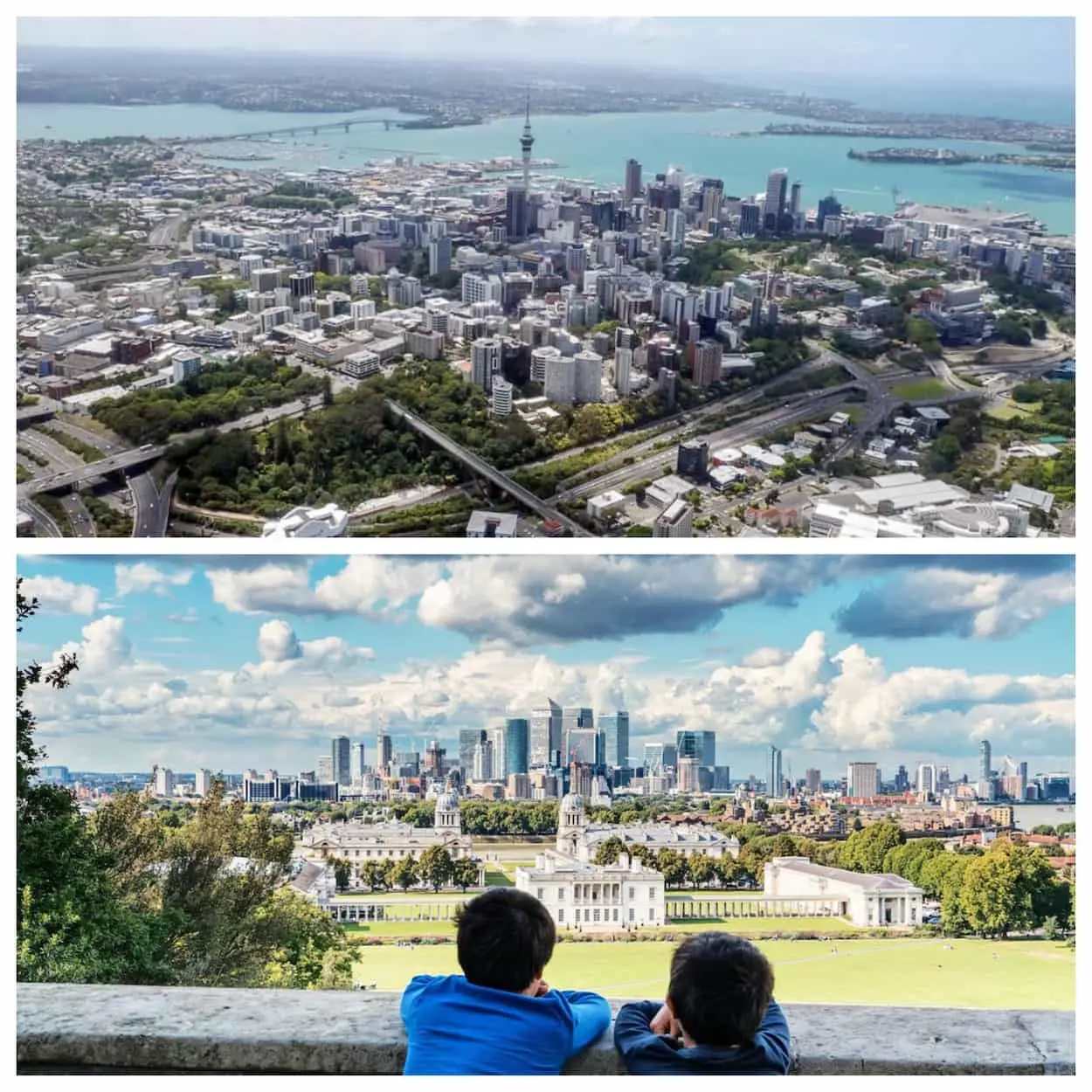
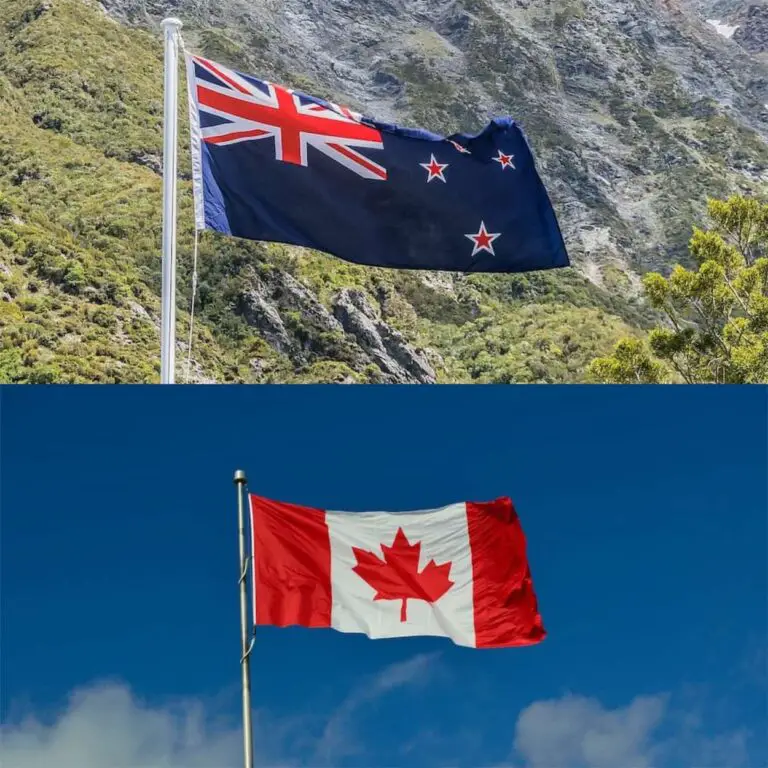
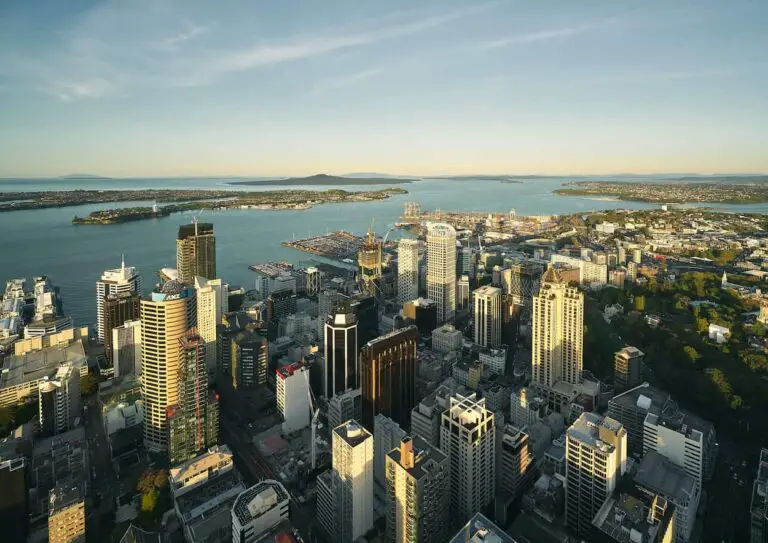
![Cost of Living for An Average Family in New Zealand [2024 Guide]](https://simplenewzealand.com/wp-content/uploads/2023/01/Depositphotos_48225999_L-768x512.jpg)

